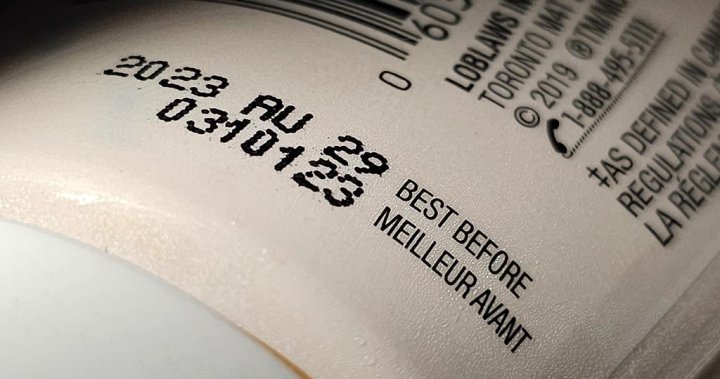
Are best-before dates on food necessary? Some food charities say it’s time to reevaluate
Global News
John Bailey, the CEO of the Regina Food Bank, said best-before dates are often intertwined with expiry dates, but the two are very different.
People may have the wrong idea about best-before dates on their favourite foods.
And now, there is a call on the government to reevaluate whether best-before dates on foods are even necessary.
John Bailey, the CEO of the Regina Food Bank, said best-before dates are often intertwined with expiry dates, but the two are very different.
“The idea of a best-before date is about peak freshness and quality control,” Bailey explained. “(With) expiry dates, once it is surpassed, you start to run into potential issues with contamination and the food not being healthy.
Bailey said with best-before dates, depending on the food, there is a large grace period when foods are actually okay to eat.
“Anywhere from a few weeks to several months to even a year or so beyond is when you can still sort of safely … enjoy the food that is past the best-before date.”
For items such as dairy, produce and meat, however, the food can quickly go downhill after the best-before date. Bailey said the safest way to check is to smell the food rather than taste-testing it.
Second Harvest, a Food Rescue Charity in Canada, is raising the alarm on the misconception between best-before dates and expiry dates.

A new report from the Angus Reid Institute shows that Saskatchewan residents are struggling financially or feel they’re in uncomfortable positions. Experts say it’s due to the high cost of living and stagnant wages. Katherine Ludwig breaks down the report and talks with experts about the reasons behind the struggle.










